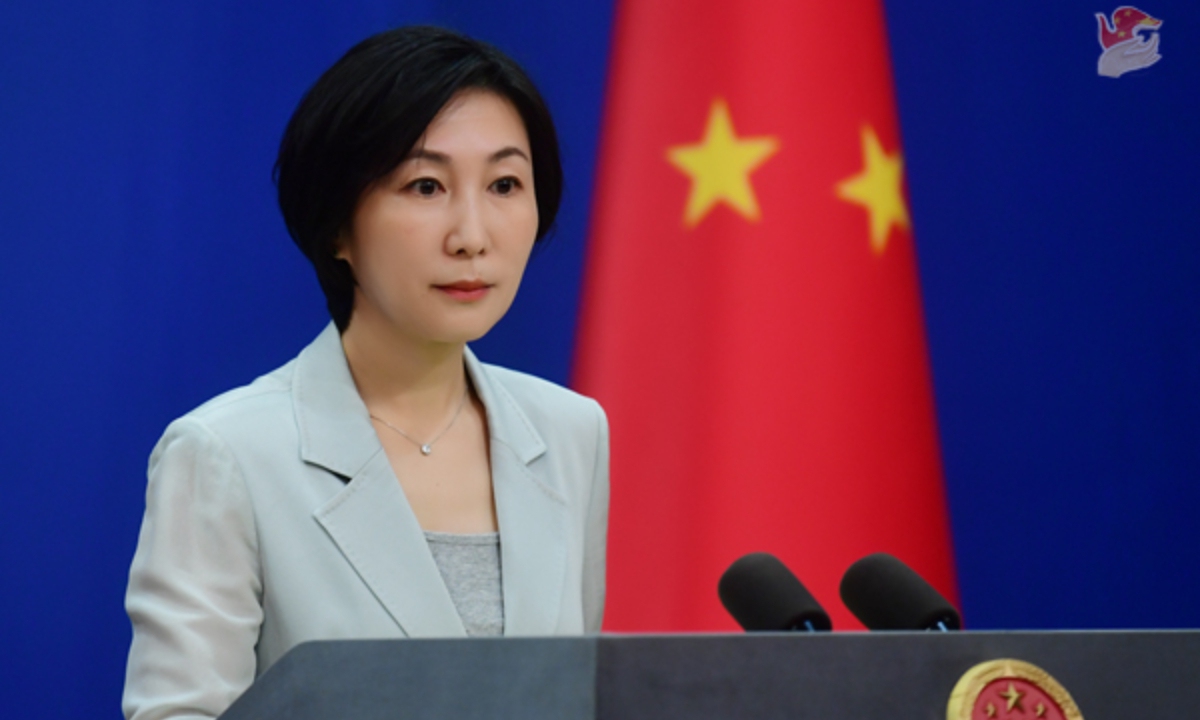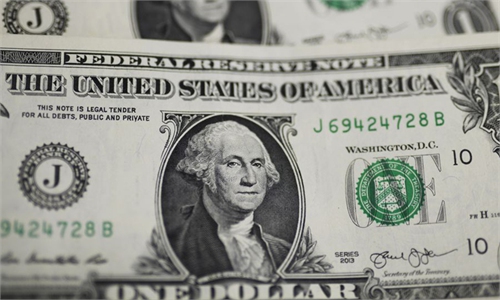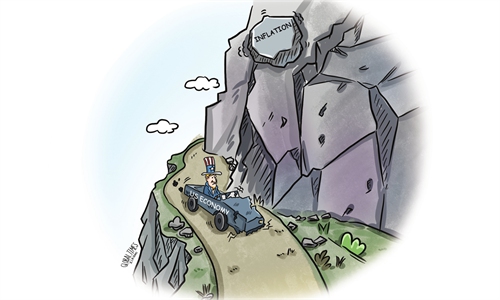China won’t take the US’ ‘coercion’ blame; reckless US monetary policy causes global financial volatility: FM spokesperson

Foreign Ministry Spokesperson Mao Ning Photo: Ministry of Foreign Affairs
When conducting investment and financing cooperation with developing countries, China follows international rules, market practices and the principle of debt sustainability, respects the will of relevant countries, and does not attach any political strings, China's Foreign Ministry said on Monday, in response to a White House document released on Friday.
The statement posted on the White House website said that it will mobilize hundreds of billions from international finance institutions to provide a sustainable source of financing to developing countries, as an alternative to the "coercive lending practices of the PRC."
According to the statement, the Biden administration requested supplemental funding from the US Congress to "advance critical national security priorities and support to allies and partners in our strategic competition with the PRC."
"China will not take the 'coercion' blame (by the US)," Mao Ning, a spokesperson for the Ministry of Foreign Affairs, said on Monday during a regular press conference.
Mao noted that since 2022, the US has raised interest rates at an unprecedented speed, which has worsened the debt of many developing countries and aggravated the volatility of global financial markets.
"As the world's largest economy, the US has the responsibility to help developing countries. We hope that the US will come up with real proposals instead of blindly engaging in geopolitical games," said Mao.
A report by the World Bank published in February said that the sharp rise in US interest rates over the past year has posed a significant threat to emerging market and developing economies (EMDEs).
The sharp increases in US interest rates, along with the associated rise in value of the dollar, exert notable spillovers on EMDE borrowing costs. The spillovers are substantially exacerbating debt burdens, rendering it more difficult to finance debt repayments, and heightening the likelihood of debt distress and financial crises in some EMDEs, according to the World Bank.
In comparison, China's financing policies for developing countries are highly consistent with the UN Sustainable Development Goals, and are a new and important complementary force to the global development financing system.
For example, between 2000 and 2020, China's sovereign financing commitments to Africa totaled about $160 billion. About $106 billion in financing commitments were completed after 2013, when the Belt and Road Initiative was launched by China, according to A Study on the Efficiency of China's Sovereign Financing in Africa released by Peking University on October 12.
According to the study, about 90 percent of the funds flowed to low and lower-middle income countries in Africa.
Global Times



